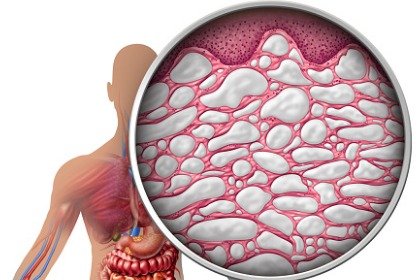Understanding Collagen: The 3 Main Types of Collagen & Their Unique Health Benefits
In a hurry? Click here to read the Article Summary...
Collagen is the most abundant protein in the body and comes second to water as the most abundant substance in our body system. It is a vital building block for our skin, tendons, and bones. No doubt you have heard something about its wonders for healthy skin, for relieving achy joints, and even what it can do to help gut health.
But did you know that there are several kinds of collagen, and each one can benefit your body in different ways? Read on to learn about which type(s) of collagen may be best for you!
Type I, II, and II: 3 Fundamental Types of Naturally Occurring Collagen
First, let’s take a look at collagen synthesis and the kinds of collagen that are naturally produced in the bodies of humans and other living beings (basically, any creature that has a skeleton and connective tissue).
There are a little over two dozen collagen types that are produced endogenously (internally) in the body. However, type I, II, and III are the three primary kinds. Each one of these types is formed in different areas of the body and can help with different things.
Type I collagen is the most prevalent type of collagen. It is the substance that makes up the skin, tendons, and bones as well as the structural framework of the organs.
It should be your go-to for hair, skin, and nail  health, especially for recouping lost collagen stores that occurs naturally as we age [1]. It is also a “well-rounded generalist,” in that it is a good type for supporting overall health.
health, especially for recouping lost collagen stores that occurs naturally as we age [1]. It is also a “well-rounded generalist,” in that it is a good type for supporting overall health.
Type I is also found in the digestive tract, which makes it (along with Type II) great for gut healing and repair. A 2010 Brazilian study [2] found that a combination of whey isolate protein and collagen hydrolysate protected the digestive tract against ulcerative lesions caused by ethanol production in the gut.
Another similar study published in the American Journal of Physiology [3] found that collagen supplementation helped to boost gastric juices and restore mucosal linings. This is due in large part to the glycine content found in collagen.
Glycine, as well as proline, are amino acids vital for the repair and healing of damaged intestinal lining. A 2017 study from the University Duisburg-Essen in Germany found that glycine aided in the regeneration of intestinal mucosal lining in a rat model [4].
Type II collagen is the structural component of cartilage in the body. Because of this, it is great for the joints and to rebuild cartilage in ligaments, tendons, skin, and bones. Type II collagen is sometimes called Cartilage Collagen because it is usually made up of bovine tracheal cartilage. Type II collagen contains a variety of specific amino acids that are particularly helpful for the body.
The first one, again, is glycine, which is beneficial for brain health [5] and metabolism. The second one is proline, which helps clean artery walls. Type II may also be good for the respiratory system, detoxification pathways, and more because it contains arginine, another amino acid that is vital for nitric oxide production. [Note: Nitric oxide is produced in the body and is beneficial for supporting blood flow and lowering blood pressure.]
For the most part, Type II collagen is where you want to turn for joint health and possibly even for arthritis support.
In a 24-week investigation conducted by Penn State University, researchers studied athletes who supplemented their diet with collagen hydrolysate. They found improvement in joint pain across the board. According to the researchers [6]:
“The results of this study have implications for the use of collagen hydrolysate to support joint health and possibly reduce the risk of joint deterioration in a high-risk group.”
Type III collagen is typically found where ever Type 1 collagen can be found as well as some other unique places. It is housed in what are called reticular fibers, the substances that make up connective tissue. It is also found in the muscles, bone marrow, blood vessels, and reproductive organs such as the uterus.
Type III collagen is also crucial for the healthy functioning of the cardiovascular system. Low Type III collagen has been linked to ruptured blood vessels and can be life-threatening [7].
What About Other Types of Collagen?
 Besides the basic Types I, II and III, there are other collagen types that help with different functions and mechanisms in the body [8].
Besides the basic Types I, II and III, there are other collagen types that help with different functions and mechanisms in the body [8].
Type IV collagen helps to strengthen endothelial cells that form the tissue protecting organs as well as muscles and fatty tissue. Endothelial cells also line the majority of the surfaces along the digestive tract and respiratory organs.
Type V collagen helps create the surface of cells while Type X helps with bone formation. There are at least a dozen others, all doing their job to keep your body lubricated, moving, and functioning at its best.
What Are Collagen Peptides?
Because collagen is a protein and proteins are made of amino acids, peptides are part of the fundamental building blocks of collagen. A “peptide” is a compound containing two or more amino acids linked in a chain-like fashion. Expanding out from that, collagen molecules in the body then form together in structures called fibrils (i.e., thin, elongated fibers).
Supplement companies break down collagen molecules into “collagen peptides” using a process called “enzymatic hydrolysis.” This deteriorates the molecular bonds between collagen fibrils. The benefit of this process to you is that collagen becomes easier to digest and absorb in the body.
Collagen peptide is also called hydrolyzed collagen or collagen hydrolysate. Many supplements come in the form of collagen peptides, and the majority of studies on the benefits of collagen supplementation utilize this form.
One form of collagen peptide that many people don’t know about is “marine collagen.” As the name implies, marine collagen comes from fish. It is a hydrolyzed collagen that proponents say is even easier to digest and absorb than bovine collagen peptides.
Marine collagen may also have other unique healing properties. Collagen in fish contains a peptide which is considered to have antibacterial properties.
A 2016 Canadian study found that selected amounts of collagen peptides derived from fish “inhibited the growth of Staphylococcus aureuscompletely [9].” A more common name for Staphylococcus aureus is “Golden Staph,” which you may recognize as a common type of bacteria responsible for mild to life-threatening infections.
Finally, marine collagen is a healthy choice for the planet, since it is made from parts of fish that are usually discarded.
Go for Quality No Matter What Collagen Product You Choose!
No matter what form collagen comes in; it is a vital substance that your body simply cannot survive (and thrive) without.
If you decide that collagen supplementation is right for you, be sure to seek the highest quality product. Make sure it is GMO-free and comes from grass-fed, antibiotic and hormone free, pasture-raised animals or wild-caught fish.
Organixx Clean Sourced Collagens blend contains five types of collagen from four sources. What’s more, it’s combined with targeted nutrients such as zinc, vitamin C, and vitamin B6 which specifically enhance the bioavailability and potency of collagen. Clean Sourced Collagens is formulated from the ground up to enhance and support your body’s natural ability to heal and rebuild itself from the INSIDE out.

 Sources:
Sources:
Article Summary
After water, collagen is the most abundant substance in our body system and is a vital building block for our skin, tendons, and bones.
There are several kinds of collagen, and each one can benefit your body in different ways.
Type I collagen is the most prevalent type of collagen. It is the substance that makes up the skin, tendons, and bones as well as the structural framework of the organs.
Type II collagen is the structural component of cartilage in the body. Because of this, it is great for the joints and to rebuild cartilage in ligaments, tendons, skin, and bones.
Type III collagen is housed in what are called reticular fibers, the substances that make up connective tissue. It is also found in the muscles, bone marrow, blood vessels, and reproductive organs such as the uterus.
Collagen is a protein and proteins are made of amino acids.
A “peptide” is a compound containing two or more amino acids linked in a chain-like fashion. Expanding out from that, collagen molecules in the body then form together in structures called fibrils (i.e., thin, elongated fibers).




Thanks for the information. What is type V and X
Thank you for tuning in, Kathy!
We are happy to share more information about the Type V and X collagen.
Type V is a collagen type found on the surface of all your cells and is the type that makes up hair strands and can promote healthier, fuller hair. And interestingly enough, it’s the type of collagen found in the placenta.
Source: Collagen: Animal Sources and Biomedical Application ( http://c34193.sgvps.net/~mauricez/wp-content/uploads/2016/12/1466_pdf-1.pdf)
Type X is a collagen type that helps with bone formation and cartilage as well, helping prevent things like arthritis and osteoporosis.
Source: The role of type X collagen in facilitating and regulating endochondral ossification of articular cartilage (https://www.ncbi.nlm.nih.gov/pubmed/15667640)
Please refer to this page to learn more about the Clean Sourced Collagens and the five major types of collagen in it: https://ox2022.organixx.com/collagens.
We hope this helps! Please let us know if there is anything else we can assist you with.
Wishing you a lovely day!